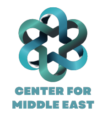Geography
Location:
Located on the eastern shore of the Mediterranean Sea, bordered by Syria to the north and east, and Israel to the south.

Topography:
Features a diverse landscape, including coastal plains, mountain ranges (Mount Lebanon and Anti-Lebanon), and the fertile Bekaa Valley.

Climate:
Mediterranean, with hot, dry summers and cool, wet winters.
History
Ancient Crossroads:
Lebanon’s history dates back thousands of years, historically serving as a maritime and trading hub for various civilizations, including the Phoenicians.

French Mandate:
Post-World War I, Lebanon came under French control, gaining independence in 1943.
Civil War and Aftermath:
The country was severely affected by a civil war from 1975 to 1990, leading to significant political and social upheaval. Recent years have seen political instability, economic challenges, and the impact of the Syrian conflict.

Leader
Current Leader:
Lebanon operates under a confessionals political system, where high-ranking positions are reserved for members of specific religious groups. The President is Christian, the Prime Minister is Sunni Muslim, and the Speaker of the Parliament is Shia Muslim. Leadership can change frequently due to the country’s political dynamics.

Governance:
Lebanon is a parliamentary democratic republic. Its unique political system aims to balance power among the country’s diverse religious sects.
Economic Overview
Main Sectors:
The Lebanese economy is service-oriented, with banking, tourism, and real estate being significant sectors. However, it faces substantial challenges, including a severe fiscal crisis, currency devaluation, and elevated levels of public debt.
Relation with Pakistan:
Economic ties between Lebanon and Pakistan are limited but include areas such as trade, investment, and cultural exchanges. There is potential for growth in bilateral trade and investment.
Strategic Importance
Regional Positioning:
Lebanon’s strategic location at the crossroads of the Middle East and the Mediterranean gives it geopolitical significance, particularly in relation to regional conflicts and international diplomacy.
Diaspora and Migration:
Lebanon has a significant diaspora worldwide, including a small community in Pakistan. Conversely, the Lebanese community in Pakistan, though modest, contributes to the cultural and social tapestry of the country.

Cultural and Social Aspects
Cultural and Historical Ties:
Despite the challenges, Lebanon remains a cultural and historical beacon in the Arab world, known for its literature, arts, and cuisine, which can promote cultural exchanges with Pakistan.
Educational and Cultural Exchange:
Opportunities exist for educational and cultural exchanges between Lebanon and Pakistan, promoting mutual understanding and cooperation.


